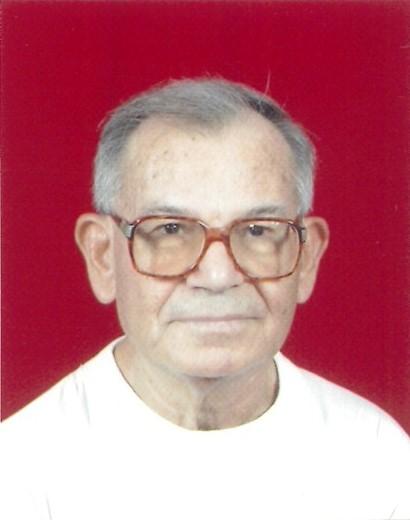Daniel Comboni
Misjonarze Kombonianie
Obszar instytucjonalny
Inne linki
Newsletter
In Pace Christi
Coppo Salvatore
Fr. Salvatore Coppo was born in Serdiana, a village in Sardinia (Italy), on 17 September, 1933. The parish of that city is consecrated to Christ the Saviour, the name he was given by his parents.
In Cagliari, the capital of the island, Fr. Coppo entered the diocesan seminary where he studied philosophy and theology. However, after meeting the Combonians, who had no house on the island, he felt the call to the “ad gentes” mission.
He was ordained on 9 July 1961 by Mons. Edoardo Mason, appointed Bishop of the new Apostolic Vicariate of El Obeid. This new portion of the people of God had been separated from that of Khartoum and became a vicariate on 3 December 1960. Fr. Coppo was incardinated in El Obeid since he was ordained priest before his final religious profession: thus he became the first priest of the new vicariate.
Two months later, Fr. Salvatore took perpetual vows of poverty, chastity and obedience in the Comboni Missionaries.
In 1963 he was sent to Sunningdale to study English. Once he learned the language he was sent to Uganda where he stayed until 1978. There he worked in the pastoral field and also as a teacher in the Minor Seminary of the Diocese in Nadiket.
In 1979 he was sent to Malawi where he was known as Father Mpulumutsi – “Saviour” form his name “Salvatore” – in the local Chichewa language. In 1983 he took a break from pastoral service to complete his doctorate in Canon Law at the Lateran University.
In 1987 he was sent to teach in the national seminary of the Episcopal Conference of Sudan, first at Juba (1987-1991) and then at Khartoum where it had to be transferred due to the war in the South. He taught at the National Seminary until 1996. He then went to Cairo to study Arabic. He was already 63 years old and could not become very proficient in that language. Despite this, he went to El Fasher (Darfur) where he served the Christian community until the year 2000. After that, he worked in the parish of Wad Medani until he returned to Khartoum to resume teaching at the National Seminary. He continued this service until the transfer of the seminary to Juba. He then had to face up to his new status as a retired teacher. Besides, since he found Arabic difficult, his pastoral possibilities were limited and, at the age of seventy, it was not easy for him to fulfil a permanent commitment teaching at Comboni College, Khartoum. He wanted to continue teaching and serving the Christian community but, on the other hand, he was aware of his limits.
Despite all this, he was able to communicate joy to all he met. This is certainly one of the ways people remember him. He loved to embrace people and this physical openness of his arms was also the reflection of his heart. Fr. Salvatore was always happy to collaborate with the Focolarini, the Charismatic Movement, the neo-Catechumenates and the Salesians.
Last January, he complained of abdominal pain. At first, the doctors thought it might be an inflammation of the prostate but when he reached Milan, cancer was diagnosed. It was not possible to operate since it had spread and had already invaded essential organs.
“We said our goodbyes in Khartoum, the night of New Year’s Day … and all was well, just a slight pain but then there was a total emergency and a hasty return to Italy for treatment – writes Pietro Roncari, a volunteer at Khartoum Comboni College, in his testimony –. He passes his rosary through his fingers, a Rosary well worn by the countless Hail Marys that marked the long African days. Even as a hospital patient, he was still the old Fr. Coppo: simple, charming, attached to the faith and to prayer like one shipwrecked escaping from the storm... The hidden, silent disease was soon to take him to his end”. He arrived at the beginning of Lent and died immediately after Easter, on 20 April 2017.
The funeral took place in the community of Milan. Besides family members, the Comboni community also attended, together with various confreres who had been his companions in mission. The celebration was presided over by his fellow Sardinian Fr. Teresino Serra who said: “Fr. Salvatore knew how to cultivate friendships. This is also shown by the messages of condolence that we have received: from the Apostolic Nuncio of Khartoum, from Cardinal Zubeir, from the Auxiliary Bishop of Khartoum, the Salesian Missionaries, some of his former students and many others. I was always struck by his humanity, a humanity that was affable, simple and intelligent”.
Da Mccj Bulletin n. 274 suppl. In Memoriam, gennaio 2018, p. 48-54.

